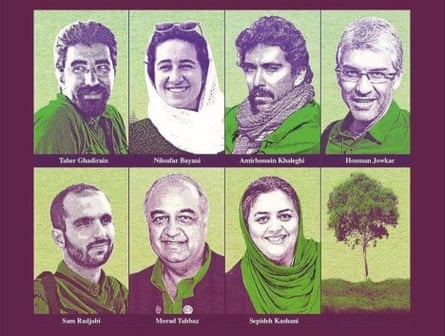Critics denounced ‘lies, hatred and racism’ as legislation moves to senate after being overwhelmingly endorsed by lower house
Tom Phillips in Rio de Janeiro
THE GUARDIAN
Wed 31 May 2023
Indigenous leaders and environmentalists in Brazil have voiced horror and indignation after lawmakers approved controversial legislation which opponents fear will strike a devastating blow to Indigenous communities and isolated tribes.
Members of Brazil’s conservative-dominated lower house overwhelmingly endorsed bill number 490 on Tuesday night, by 283 votes to 155.

Outcry as Brazil congress moves to gut environment and Indigenous ministries
“You will have Indigenous blood on your hands,” the Indigenous congresswoman Célia Xakriabá told its rightwing backers as leftwingers took to the podium to protest by smothering their hands in the red dye of annatto seeds.
Critics say the legislation, which now moves to the senate, poses a series of profound threats to Indigenous communities and the environment:
It potentially opens the door to road-building, mining, dam construction, agricultural projects and the use of genetically modified crops on protected Indigenous lands, as well as authorizing contact with isolated Indigenous groups in certain circumstances.
It would allow the government to reclaim land from Indigenous communities whose “cultural traits” are deemed to have changed.
Perhaps most damagingly, the legislation would also invalidate Indigenous claims to lands such groups could not prove they physically occupied on the day Brazil’s constitution was enacted in October 1988. Activists say that “time limit trick” could scupper scores of legitimate claims for the delimitation of Indigenous lands, from groups who had already been evicted from their ancestral lands or whose presence had yet to be recognized at the cut-off date.
The Climate Observatory watchdog said Brazil’s parliament had witnessed “its most shameful day since the 2016 impeachment of Dilma Rousseff” – a “show of lies, hatred and racism” which signaled the environmental chaos caused by former president Jair Bolsonaro was far from over.
Lawmakers had sent “a clear message to the country and the world: Bolsonaro is gone but the extermination [of Indigenous communities and the environment] continues,” the Climate Observatory added.
Sarah Shenker, a campaigner at human rights group Survival International, said: “This catastrophic bill is the most serious attack on Indigenous rights in decades … Hundreds of Indigenous territories home to over a million Indigenous people could be destroyed.”
She added: “There are many examples of uncontacted tribes whose existence and location was not yet officially confirmed by government in October 1988 … so if [this] was approved it could be used by anti-Indigenous politicians who are desperate to steal [such territories].”
When Luiz Inácio Lula da Silva returned to Brazil’s presidency in January there was optimism South America’s largest country was entering a new era of sustainable development, environmental protection and respect for Indigenous rights. Lula named the veteran environmentalist Marina Silva as his environment minister and created a ministry for Indigenous peoples run by the Indigenous activist Sônia Guajajara. “We are going to reverse all of the injustices committed against Indigenous peoples,” Lula vowed in his inaugural address, claiming Brazil had a “historic debt” to such groups.
But the rowdy congressional debate that preceded the approval of Bill 490 brought such hopes crashing back down to earth and revealed a starkly divided country.
A succession of white, mostly male lawmakers took the microphone to claim they were supporting the legislation because they considered themselves Indigenous defenders who wanted to help such groups integrate into mainstream society. Many were staunch supporters of Bolsonaro and members of the powerful ruralista bloc linked to agribusiness which boasts 302 of the 513 seats in the lower house and 42 of 81 senators.
Bibo Nunes, a congressman from Bolsonaro’s rightwing Liberal party (PL), voiced outrage that nearly 14% of Brazil’s territory was in the hands of Indigenous people who represented only 0.4% of the population. “What’s the logic? Explain it to me, you lefties!” Nunes bellowed.
Leftist politicians countered that the legislation would endanger Indigenous lives as well as the global struggle against climate change given the crucial role Indigenous communities have in protecting the Amazon rainforest.
“This is a bill of death, backwardness and regression … This is a crime against Indigenous people,” said Juliana Cardoso, a congresswoman from Lula’s Worker’s party (PT).
But such arguments were ignored and the bill passed easily.
Guajajara told activists to remain mobilized in the face of what she called “a serious attack on Indigenous people and the environment”. “We will remain steadfast and united, as we always have been,” Lula’s Indigenous minister said in a video message.
Indigenous leaders and environmentalists in Brazil have voiced horror and indignation after lawmakers approved controversial legislation which opponents fear will strike a devastating blow to Indigenous communities and isolated tribes.
Members of Brazil’s conservative-dominated lower house overwhelmingly endorsed bill number 490 on Tuesday night, by 283 votes to 155.

Outcry as Brazil congress moves to gut environment and Indigenous ministries
“You will have Indigenous blood on your hands,” the Indigenous congresswoman Célia Xakriabá told its rightwing backers as leftwingers took to the podium to protest by smothering their hands in the red dye of annatto seeds.
Critics say the legislation, which now moves to the senate, poses a series of profound threats to Indigenous communities and the environment:
It potentially opens the door to road-building, mining, dam construction, agricultural projects and the use of genetically modified crops on protected Indigenous lands, as well as authorizing contact with isolated Indigenous groups in certain circumstances.
It would allow the government to reclaim land from Indigenous communities whose “cultural traits” are deemed to have changed.
Perhaps most damagingly, the legislation would also invalidate Indigenous claims to lands such groups could not prove they physically occupied on the day Brazil’s constitution was enacted in October 1988. Activists say that “time limit trick” could scupper scores of legitimate claims for the delimitation of Indigenous lands, from groups who had already been evicted from their ancestral lands or whose presence had yet to be recognized at the cut-off date.
The Climate Observatory watchdog said Brazil’s parliament had witnessed “its most shameful day since the 2016 impeachment of Dilma Rousseff” – a “show of lies, hatred and racism” which signaled the environmental chaos caused by former president Jair Bolsonaro was far from over.
Lawmakers had sent “a clear message to the country and the world: Bolsonaro is gone but the extermination [of Indigenous communities and the environment] continues,” the Climate Observatory added.
Sarah Shenker, a campaigner at human rights group Survival International, said: “This catastrophic bill is the most serious attack on Indigenous rights in decades … Hundreds of Indigenous territories home to over a million Indigenous people could be destroyed.”
She added: “There are many examples of uncontacted tribes whose existence and location was not yet officially confirmed by government in October 1988 … so if [this] was approved it could be used by anti-Indigenous politicians who are desperate to steal [such territories].”
When Luiz Inácio Lula da Silva returned to Brazil’s presidency in January there was optimism South America’s largest country was entering a new era of sustainable development, environmental protection and respect for Indigenous rights. Lula named the veteran environmentalist Marina Silva as his environment minister and created a ministry for Indigenous peoples run by the Indigenous activist Sônia Guajajara. “We are going to reverse all of the injustices committed against Indigenous peoples,” Lula vowed in his inaugural address, claiming Brazil had a “historic debt” to such groups.
But the rowdy congressional debate that preceded the approval of Bill 490 brought such hopes crashing back down to earth and revealed a starkly divided country.
A succession of white, mostly male lawmakers took the microphone to claim they were supporting the legislation because they considered themselves Indigenous defenders who wanted to help such groups integrate into mainstream society. Many were staunch supporters of Bolsonaro and members of the powerful ruralista bloc linked to agribusiness which boasts 302 of the 513 seats in the lower house and 42 of 81 senators.
Bibo Nunes, a congressman from Bolsonaro’s rightwing Liberal party (PL), voiced outrage that nearly 14% of Brazil’s territory was in the hands of Indigenous people who represented only 0.4% of the population. “What’s the logic? Explain it to me, you lefties!” Nunes bellowed.
Leftist politicians countered that the legislation would endanger Indigenous lives as well as the global struggle against climate change given the crucial role Indigenous communities have in protecting the Amazon rainforest.
“This is a bill of death, backwardness and regression … This is a crime against Indigenous people,” said Juliana Cardoso, a congresswoman from Lula’s Worker’s party (PT).
But such arguments were ignored and the bill passed easily.
Guajajara told activists to remain mobilized in the face of what she called “a serious attack on Indigenous people and the environment”. “We will remain steadfast and united, as we always have been,” Lula’s Indigenous minister said in a video message.
Brazilian lawmakers vote to limit recognition of Indigenous reserves
Agence France-Presse
May 31, 2023

An Indigenous man takes part in a demonstration against the so-called legal thesis Marco Temporal (Temporal Milestone), a bill that stops the demarcation of Indigenous territories, in Manaus, Amazonas State, Brazil, on May 30, 2023.
Agence France-Presse
May 31, 2023

An Indigenous man takes part in a demonstration against the so-called legal thesis Marco Temporal (Temporal Milestone), a bill that stops the demarcation of Indigenous territories, in Manaus, Amazonas State, Brazil, on May 30, 2023.
© Michael Dantas, AFP
Brazil's lower house of Congress approved legislation Tuesday that would limit expanded demarcations of Indigenous lands, which are considered key to protecting the Amazon and its native peoples.
The text, passed by the Chamber of Deputies on a 283-155 vote, establishes that reserves can only be on land occupied by Indigenous people at the time of the promulgation of the current constitution, in 1988.
The bill, which has yet to move to the Senate, was promoted by representatives sympathetic to the agribusiness sector and other opposition groups, and represents a setback for President Luiz Inacio Lula da Silva's environmental goals.
According to scientists, Indigenous lands create key buffer zones against deforestation in the Amazon, the largest tropical forest in the world.
Hours ahead of the vote, about 100 indigenous people temporarily blocked a highway on the outskirts of Brazil's largest city Sao Paulo, before the police dispersed them with tear gas, according to images broadcast by local TV.
Brazilian Indigenous communities reject the premise of the bill, arguing they have the right to their original territories, regardless of the status of their occupation in 1988.
Critics say many Indigenous peoples did not occupy certain areas that year because they had been expelled during the preceding military dictatorship, which ended in 1985.
'War against Indigenous peoples'
There are a total of 764 Indigenous territories in Brazil, but around a third of them have not yet been demarcated, according to figures from the National Foundation for Indigenous Peoples (FUNAI).
Lula recognized six new territories in April, the first in five years after Indigenous rights stalled under far-right former president Jair Bolsonaro.
The Chamber of Deputies vote sparked protests in Brazil including in Manaus, the largest city in the Amazon region. It also drew the attention of international NGOs and activists, including American actors Leonardo Di Caprio and Mark Ruffalo.
The government of Brazil "is being attacked by agribusiness," Ruffalo tweeted ahead of the debate. "There is a war against Indigenous peoples and forests. Our planet is at risk."
Brazil's Minister of Indigenous Peoples, Sonia Guajajara, said Tuesday that the bill "is a genocide against Indigenous peoples, but also an attack on the environment."
She added that she would keep fighting as the bill heads to the Senate.
(AFP)
Brazil's lower house of Congress approved legislation Tuesday that would limit expanded demarcations of Indigenous lands, which are considered key to protecting the Amazon and its native peoples.
The text, passed by the Chamber of Deputies on a 283-155 vote, establishes that reserves can only be on land occupied by Indigenous people at the time of the promulgation of the current constitution, in 1988.
The bill, which has yet to move to the Senate, was promoted by representatives sympathetic to the agribusiness sector and other opposition groups, and represents a setback for President Luiz Inacio Lula da Silva's environmental goals.
According to scientists, Indigenous lands create key buffer zones against deforestation in the Amazon, the largest tropical forest in the world.
Hours ahead of the vote, about 100 indigenous people temporarily blocked a highway on the outskirts of Brazil's largest city Sao Paulo, before the police dispersed them with tear gas, according to images broadcast by local TV.
Brazilian Indigenous communities reject the premise of the bill, arguing they have the right to their original territories, regardless of the status of their occupation in 1988.
Critics say many Indigenous peoples did not occupy certain areas that year because they had been expelled during the preceding military dictatorship, which ended in 1985.
'War against Indigenous peoples'
There are a total of 764 Indigenous territories in Brazil, but around a third of them have not yet been demarcated, according to figures from the National Foundation for Indigenous Peoples (FUNAI).
Lula recognized six new territories in April, the first in five years after Indigenous rights stalled under far-right former president Jair Bolsonaro.
The Chamber of Deputies vote sparked protests in Brazil including in Manaus, the largest city in the Amazon region. It also drew the attention of international NGOs and activists, including American actors Leonardo Di Caprio and Mark Ruffalo.
The government of Brazil "is being attacked by agribusiness," Ruffalo tweeted ahead of the debate. "There is a war against Indigenous peoples and forests. Our planet is at risk."
Brazil's Minister of Indigenous Peoples, Sonia Guajajara, said Tuesday that the bill "is a genocide against Indigenous peoples, but also an attack on the environment."
She added that she would keep fighting as the bill heads to the Senate.
(AFP)





.jpg)























